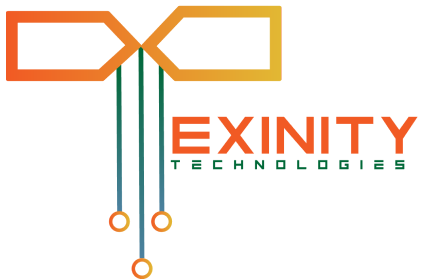
The Future is Cloud
Either the catchphrase is future is cloud or cloud is future, let’s build our future with the cloud.
-Zehnish Karim
The Future is Cloud
Ever heard about the cloud? Wait it’s not the cloud you are thinking of. You might think about the nimbus clouds that might bring rain or the cumulus clouds that help you view the aesthetic blue sky reflecting the UV radiations. However, it’s not!!
Furthermore, the cloud is an advancement in technology. It was formulated in the late 1960s by an American psychologist and computer scientist. With this innovation, companies can make their work efficient by converting data to the cloud at minimum cost. Also, it tends to conserve money on storage servers and management services. Putting it simply cloud is a metaphorical language for the internet. Instead of using the computer’s hard drive, it stores and access data and programs over the internet. Technological advancement is no wonder encrusted with awe itself. Besides, these cloud services have three main types that include the following:
Infrastructure as Service (IaaS)
Platform as a Service (PaaS)
Software as a Service (SaaS)
Now why wonder in presuming cloud as our future. Thus, there are certain prevailing reasons why our future is cloud or cloud is our future. As the presence of the cloud is progressing, even more, the data scientist aims to operate with AI. Also, the objective is to feature AI in business so that it could ameliorate the functions of the business. Hence, it could be observed that it is used for the efficiency of work in a particular field. Moreover, the cloud is an interconnected web of servers that are only approached via the internet. The need for databases and software is a must since they run on these servers. Many data centers throughout the world host cloud servers. When users and organizations use cloud computing, they don't have to manage actual servers or run applications on their desktops. As a result, there are several reasons why cloud computing may be the way of the future.
1- Storage capability:
‘Your storage is running out. This is what my cell phones often show me whenever I want to feed something new. Likewise, this could be the same case with gigantic companies where their systems could be warning them to erase some data to store the other one. However, the cloud is willing to pay security checks not only to your data but also could store bytes of data. Within these circumstances, it is prophesied that cloud providers are alacritous in providing data centers and truncating the money eventually.
2- Data Safety:
Although the security of data is protected, it is not completely safe. Data protection may or may not be adequate for small firms that provide cloud services. As a result, we will be better prepared to defend ourselves against future cyber-attacks. Cloud providers give more robust security features, allowing for a more balanced approach to cyber-attack prevention. Even if cloud vendors provide basic encryption, organizations should employ robust file-level encryption techniques. File-level encryption can be used as the foundation of your cloud security, offering an extra layer of security before transferring data. Data can also be "shared" into smaller chunks.
3- Artificial Intelligence and Cloud Computing
As technology advances, one of the most common cloud computing themes to watch is artificial intelligence (AI). To better their company operations, IT companies are increasingly looking at adopting AI to analyze massive data. The computing platforms enhance and ameliorate their efficiency by featuring artificial intelligence. It now gives businesses the capacity to intelligently automate and manage their processes. They may also readily scale and adapt to changing business needs thanks to the framework. Simply put, artificial intelligence (AI) is a cloud computing topic to keep an eye on because it enables more optimal work procedures. According to an IBM study, 65 percent of companies believe AI is essential to their strategy and success.
4- Internet of things
Internet of things or IoT is the internet of things and is a network of interconnected computing devices, mechanical and digital machinery, items, animals, and people with unique identifiers and the ability to send data without the need for human transmission connection According to a Gartner estimate, the number of connected devices in use will increase to 25 billion by 2021, up from 14.2 billion in 2019. A cloud-enabling platform that works with regular devices to enable cloud-based apps and services is known as an Internet of Things platform. The Internet of Things acts as a middleman, gathering data from various devices and allowing for remote device configuration and smart device administration. To address issues, self-managing technology gives out real-time alerts. It also provides several industry-standard methods for delivering smart forecasts based on business activity monitoring.
Either the catchphrase is future is cloud or cloud is future, let’s build our future with the cloud. Getting a little bit acquainted with technology, let’s together discover the concealed beauty.
Posted By: Zehnish Karim
Posted On: 28 March, 2022